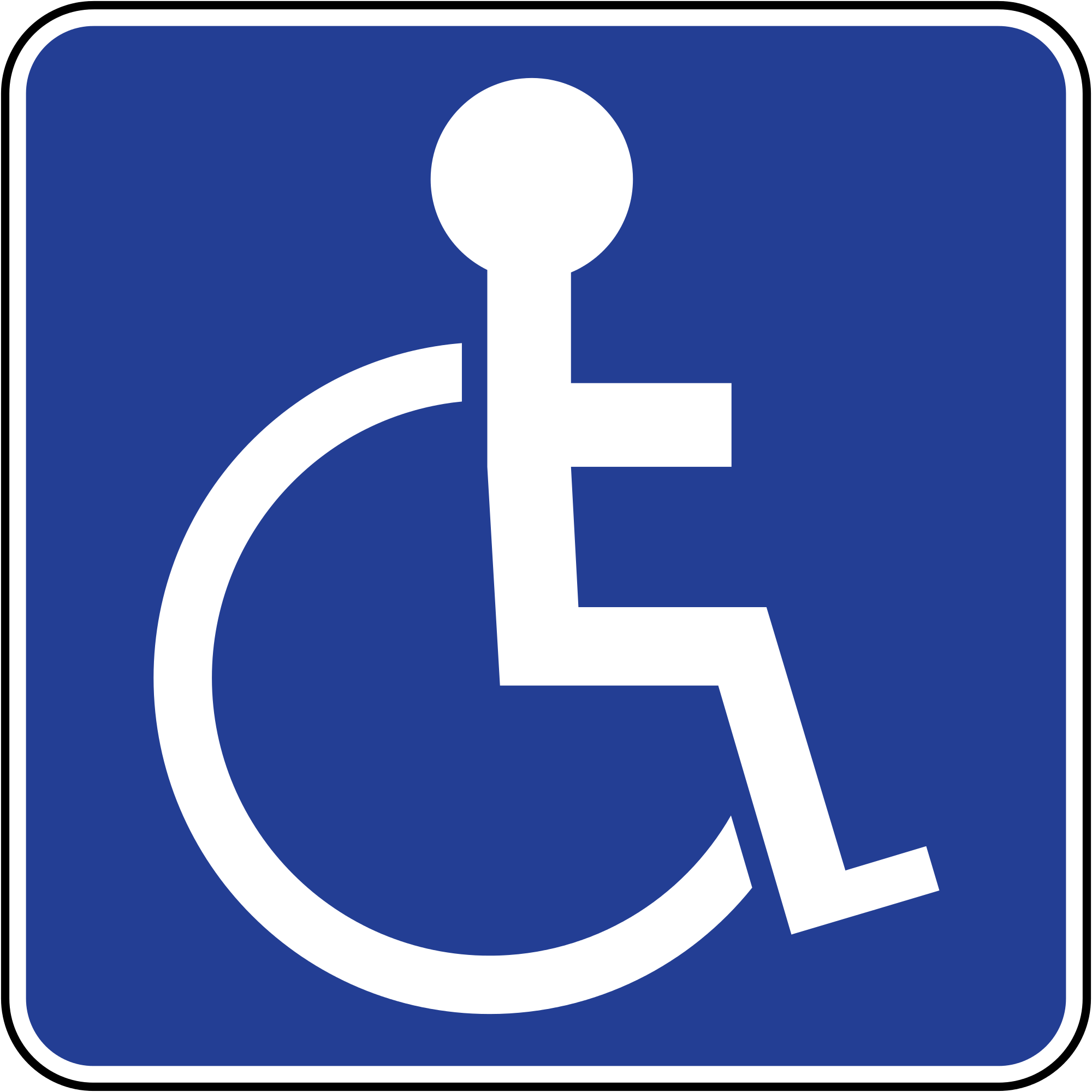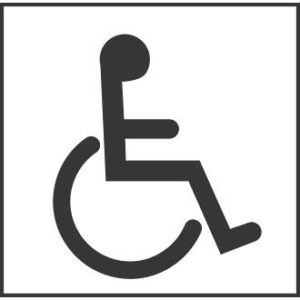Disabled Renters
Disabled renters can be very grateful to an accommodating owner and can be a very loyal tenant. If treated fairly, you can establish a great rapport. They have definite legal rights which should not be ignored. Some have been discriminated against and won’t tell you of their disabilities until after moving in for fear they’ll be turned away. After moving in, you’ll be informed and then the owner is concerned of any costs imposed. Let’s discuss some of those possibilities.
First, disability is not always obvious. It’s not always a person in a wheelchair. Federal laws define a person with a disability as “any person who has a physical or mental impairment that substantially limits one or more major life activities; has a record of such impairment; or is regarded as having such impairment.” Example: “This may include, but is not limited to, such diseases and conditions as orthopedic, visual, speech and hearing impairments, cerebral palsy, autism, epilepsy, muscular dystrophy, multiple sclerosis, cancer, heart disease, diabetes, Human immunodeficiency Virus infection, mental illness, drug addiction (other than addiction caused by current, illegal use of a controlled substance) and alcoholism…”
Landlords are not allowed to question applicants about a disability or illness or ask to see medical records. Even if the prospective tenant is obviously disabled, such as in a wheelchair, it’s illegal to inquire how severe the disability is. Your intentions may even be well-intentioned but you can’t make decisions for the person wanting to rent from you. He or she must make those decisions for him/herself whether to check out that apartment with the stairs in back! You can only decide based upon the person’s ability to pay the rent and background check, as any other applicant.
However, once an applicant or tenant informs you of his/her disability and requests any accommodations provided for same, that is something you can discuss with the tenant. You still may not request medical records but now you are looking at what you must provide according to the Federal Fair Housing Act. You must make an effort to provide any reasonable requests, such as providing a nearby parking space if possible, changing anything you can to assist but you are not required to create unreasonable financial burden other than making it possible for the tenant to make his or her modifications. That requires housing providers simply to make reasonable modifications, such as allowing the person to install a ramp into the building or install grab bars in the bathroom. Those modifications are usually made at the tenant’s expense unless it’s a federally assisted housing unit. If you take on any expenses by choice, you do have the right to ask for a doctor’s letter informing you that the tenant does have a medical issue, just not any details of that issue.“For more information look at Section 504 of HUD.”
Other Federal Requirements from the Fair Housing Act that Owners should make assessable so that the disabled tenants are able to rent comfortably + properly add the grab bars:
“Requires that new covered multifamily housing be designed and constructed to be accessible. In covered multifamily housing consisting of 4 or more units with an elevator built for first occupancy after March 13, 1991, all units must comply with the following seven design and construction requirements of the Fair Housing Act:
o Accessible Entrance on an Accessible Route
o Accessible Public and Common-Use Areas
o Usable Doors
o Accessible Route Into and Through the Dwelling Unit
o Accessible Light Switches, Electrical Outlets, Thermostats, and Environmental Controls
o Reinforced Walls in Bathrooms
o Usable Kitchens and Bathrooms
In covered multifamily housing without an elevator that consists of 4 or more units built for first occupancy after March 13, 1991, all ground floor units must comply with the Fair Housing Act seven design and construction requirements.”
One last accommodation allowed to a disabled person is an assistance animal. There can be no pet fee or pet rent charged for an assistance animal. That is not a pet and must be allowed even in a “No-Pet” building or house. Assistance animals perform tasks for the disabled person, provide emotional support, may guide the blind or low vision, those with poor hearing, alert people with impending seizures, and many other disability related issues. If it’s an emotional support animal, the tenant can get an ESA letter from any doctor or therapist (per NOLO). However, for reasonable accommodation purposes, neither the Fair Housing Act or Section 504 requires an assistance animal to be individually trained or certified. Dogs are usually the assistance animal of choice but other animals can also qualify. A tenant can’t force an unreasonable animal, such as a horse, llama, or wild animal into your property. Most disabled persons do not bring animals with them anyway but if they do, open your doors. They are necessary.
All of these things are required of the owner but the same requirements of any tenant are required of a disabled tenant. You hold that tenant to the same background checks, payments of rent, not being a nuisance to neighbors, etc. As said, quite often, that tenant may be your best in the long run. He or she, if treated fairly, may treat you just as fairly if not better.

